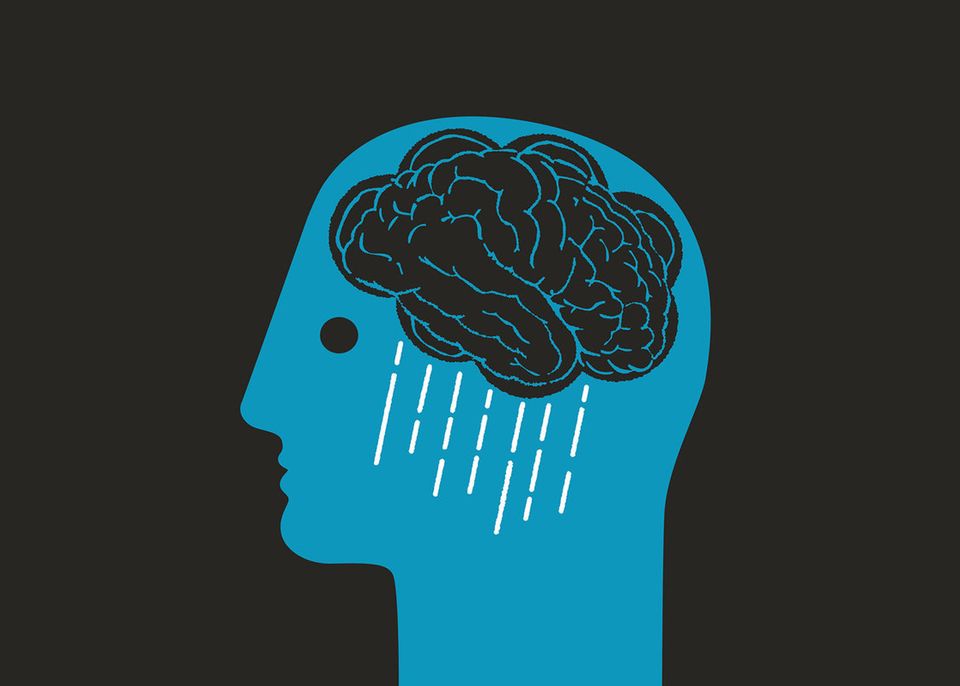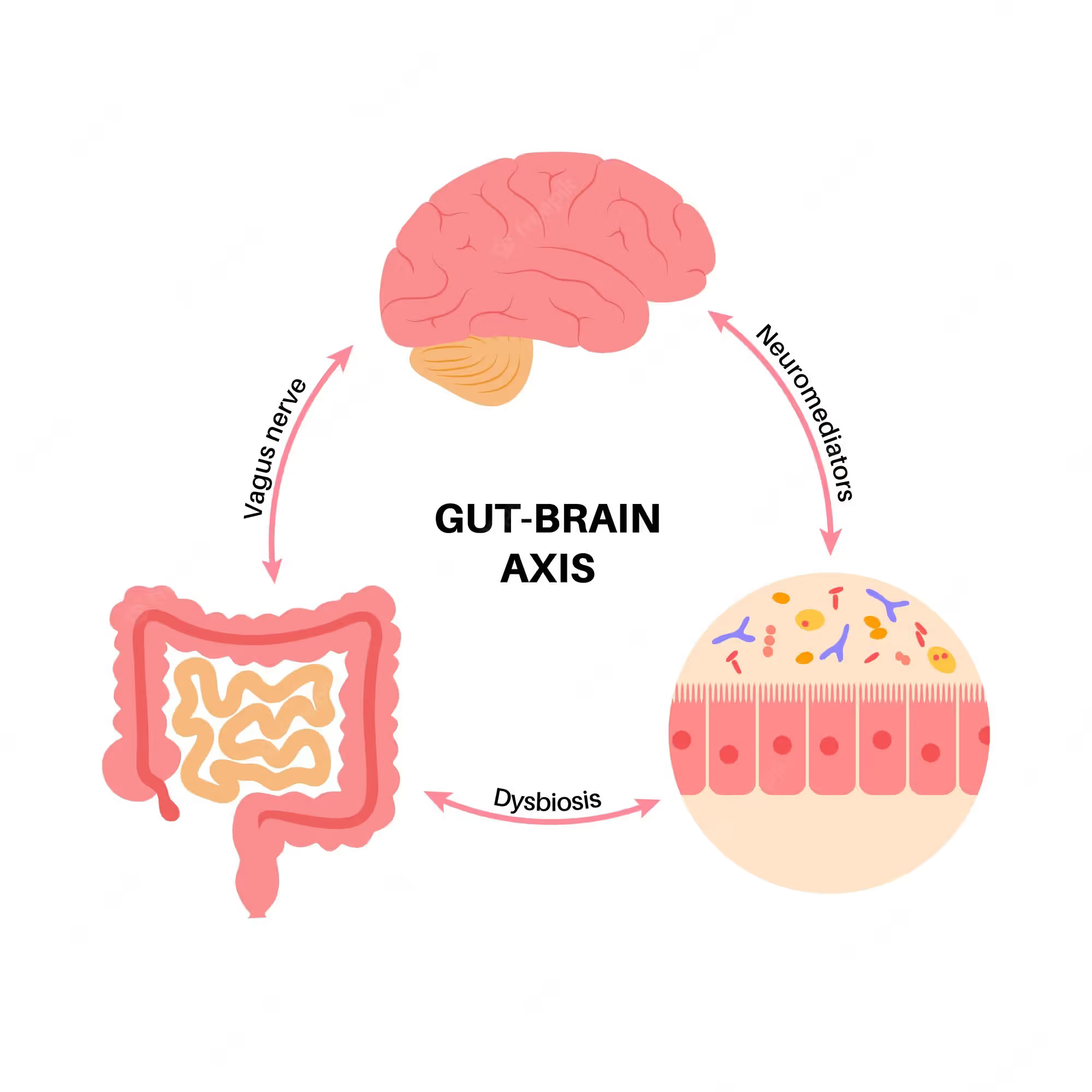Food for Thought: How What You Eat Impacts Your Mood and Mental Wellness

Welcome back to Just Thrive, where we delve into the fascinating world of psychology, nutrition, and lifestyle to uncover the secrets to thriving in life.
Today, we're diving deep into the topic of food and its profound impact on both our bodies and minds. Get ready to explore the science behind it and gain a better understanding of why the food we consume matters so much. Let's dig in!
1. The Gut-Brain Connection:

Did you know that your gut and brain are in constant communication? It's true! The intricate network of neurons and chemicals that exist in your gut, often referred to as the "second brain," plays a crucial role in influencing your mood, emotions, and even cognitive functions. This means that the food we eat has a direct impact on our mental well-being.
For example, imagine your gut as a busy telephone line, constantly buzzing with messages between your stomach and your brain. It's like a secret code language that only your gut and brain can understand. So, when you nourish your body with healthy, nutrient-rich foods, it's like sending positive vibes down the line.
Your gut happily communicates this to your brain, resulting in improved mood, increased focus, and a general sense of well-being. On the other hand, if you feed your gut with unhealthy, processed foods, it's like a bad connection that leads to static interference. The messages get distorted, and your brain may receive signals of discomfort, low energy, and even mood swings.
So, let's keep that gut-brain communication clear and thriving by choosing foods that support our mental harmony!
2. Nutrient Powerhouses:
Food isn't just about calories and sustenance; it's a rich source of essential nutrients that fuel our bodies and support optimal functioning. From vitamins and minerals to antioxidants and omega-3 fatty acids, these nutrients act as superheroes, protecting our cells, boosting our immune system, and promoting overall vitality. By nourishing our bodies with a balanced diet, we can enhance our physical and mental resilience.
Think of essential nutrients as the Avengers assembling to protect your body and mind. Vitamin C swoops in like Iron Man, shielding your cells from harmful free radicals. Omega-3 fatty acids act as Thor's mighty hammer, bolstering your immune system and improving brain function. Meanwhile, antioxidants, like Captain America's shield, defend your body against the villains of oxidative stress.
When we consume a well-balanced diet rich in fruits, vegetables, whole grains, and lean proteins, we're giving our bodies the superhero fuel they need to fight off illness, boost our energy levels, and keep us feeling like true champions of well-being.
3. Blood Sugar Roller Coaster:
Have you ever experienced a sudden burst of energy followed by a crash shortly after eating? This roller coaster ride is often a result of the impact food has on our blood sugar levels. When we consume sugary or highly processed foods, our blood sugar spikes, leading to an energy surge. However, this surge is short-lived, and as our blood sugar plummets, we're left feeling tired, irritable, and craving more unhealthy snacks. Maintaining stable blood sugar levels through mindful food choices can help us sustain steady energy throughout the day.
Here are three tangible tips to prevent blood glucose spikes and maintain stable blood sugar levels:
- Choose Complex Carbohydrates: Instead of reaching for refined carbohydrates like white bread or sugary snacks, opt for complex carbohydrates. These include whole grains, legumes, and vegetables. Complex carbohydrates are rich in fiber, which slows down digestion and the release of glucose into the bloodstream. This leads to a more gradual and sustained increase in blood sugar levels, avoiding sharp spikes and crashes. So, swap that white bread for whole grain options and enjoy the lasting energy they provide.
- Pair Carbohydrates with Protein or Healthy Fats: When consuming carbohydrates, try to combine them with a source of protein or healthy fats. Protein and fats help slow down the digestion process, preventing rapid glucose absorption. For example, have a handful of nuts with your apple or add some avocado to your whole grain toast. These combinations provide a balance of nutrients and contribute to a more controlled release of glucose into the bloodstream, helping to stabilize blood sugar levels.
- Practice Portion Control: Watching portion sizes is essential in managing blood sugar levels. Even with healthy foods, overeating can still lead to spikes in blood glucose. Be mindful of your serving sizes and aim for balanced meals that include a mix of carbohydrates, proteins, and fats. Use smaller plates and take your time to savor each bite. Pay attention to your body's signals of fullness and stop eating when you feel satisfied. By practicing portion control, you can prevent excessive glucose surges and maintain better control over your blood sugar levels.
Remember, maintaining stable blood sugar levels is crucial for overall health and well-being. By implementing these three tangible tips—choosing complex carbohydrates, pairing carbohydrates with protein or healthy fats, and practicing portion control—you can ride the blood sugar roller coaster with ease and enjoy steady energy throughout the day.

4. Inflammation and Mental Health:

Emerging research suggests a strong connection between our diet, inflammation, and mental health. Certain foods, such as those high in refined sugars and unhealthy fats, can trigger chronic inflammation in the body. This inflammation not only contributes to physical ailments but can also impact our mental well-being, leading to symptoms of depression, anxiety, and even cognitive decline. On the other hand, adopting an anti-inflammatory diet rich in fruits, vegetables, whole grains, and healthy fats can help reduce inflammation and support better mental health.
As we've uncovered the science behind it, it's clear that food holds incredible power over our bodies and minds. From the gut-brain connection to the impact on our blood sugar levels and inflammation, the choices we make in our diet have far-reaching consequences.
So, let's strive for balance, nourishing our bodies with nutrient-dense foods while savoring the occasional indulgence. By understanding the science behind food's effects and making mindful choices, we can optimize our well-being, fuel our potential, and truly thrive.
Action Steps:
- Reflect on your current eating habits and consider how they may be impacting your mental well-being.
- Incorporate more nutrient-dense foods into your diet, such as fresh fruits, vegetables, whole grains, and lean proteins.
- Minimize your intake of processed foods, refined sugars, and unhealthy fats, which can contribute to inflammation and mood imbalances.
- Experiment with mindful eating techniques, such as savoring each bite, eating without distractions, and listening to your body's hunger and fullness cues.
- Stay curious and continue exploring the fascinating intersection between food, psychology, and overall well-being.

Remember, small changes in your diet can lead to significant improvements in both your physical and mental health. So, let's embark on this journey together and unlock the transformative power of food. Here's to a thriving life!
Stay tuned for more empowering content as we continue our quest to understand the intricate workings of our minds and bodies. Until next time, thrive on!